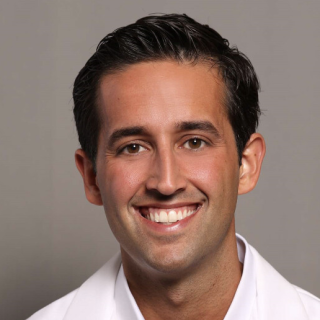EM residency is like a baseball game. Players learn different positions, hone core competencies, practice procedures and plays, and fail — often. Yet, the true measure of success is how one adapts to that failure and responds the next time. The journey through residency mimics that process. As the world freshly re-emerges from a pandemic combined with the new academic year, I wanted to share a few lessons I learned as a chief resident during COVID-19 for future chief residents to consider as they begin to lead their programs.
High Reliability Residency: Shareholder Culture
Shareholders are owners. They are responsible for the bottom line, the future state, and most importantly, the culture. The most important responsibility of a chief resident is to be guardians & creators of the program’s positive and supportive culture. Residency shareholders are responsible for excellent patient care and humility, all the while possessing a growth mindset and unfailingly being kind and professional. Residency renters are leases and see this experience as a transient time-block of shifts and obligations. One of the most important responsibilities a Chief Resident has is cultivating the shareholder culture each and every day. Culture is explicit and implicit – it is how people treat one another when the administration is not present, the decisions we make and how we make them, and the vulnerability we exhibit with those we lead. How will you create a ‘shareholder culture’ in your program?
Sacrifice Fly
Baseball is a metaphor for life. Seeing teams coming together for a common purpose all brings me back to the 14-hour bus rides down south as a collegiate NCAA Division II catcher and the concept of the sacrifice fly and getting the runner over. Runner on, hitter gives themselves up, moves the runner over, and the team has a better chance to win. And, it does not count against that hitter’s batting average. It is a beautiful thing that makes me think of the residency culture we already spoke about — become shareholders, upper levels teaching interns, joint resuscitations. For example, it’s an upper-level resident being present, supportive, and instructing interns during their first intubation. Focus as a chief on identifying opportunities to get the runner over. Everyone in your program will win that way.
Earn Trust and Confidence
As an intern with the United States Secret Service during the 2012 Presidential Election, I learned the agency's motto: “Worthy of Trust and Confidence.” I believe that your residency is in pursuit of the trust and confidence in the minds and hearts of your patients and their families, colleagues, faculty and attendings, and support staff. Earning and accelerating the process of building trust and gaining the confidence of your team takes time, sweat equity, and is uniquely situated for placement in, as Simon Sinek eloquently describes it, “the infinite game.” There is no checklist for this, and the time this takes is earned each day and credited into the emotional intelligence bank account. Make deposits into this account often through consistent daily actions of service, availability, and accessibility for those in your charge. How will you be worthy of trust and confidence today?
Competence is Fragile
A few years back, a then-newly minted Emory EM residency graduate, Dr. Jason Prystowsky, wrote a reflection on residency training. Whether after a string of trying shifts or taking a moment of reflection on how far you have come, this is instructive, candid, and possesses a deep perspective and a worthy vantage point. I invite you to pull up a chair and listen to his wisdom. “In the last three years, I have learned so much. I learned to be a better doctor and to be a better person. But, most importantly, I learned how little I know, to always fear ignorance, and how much, much more I have yet to learn.” Dr. Prystowsky commented that as he reflected on his residency training, the themes of gratitude and humility were paramount. Make gratitude and humility part of your daily responsibility as a team leader.
More Than a Name-Tag
As we see on a daily basis, people walk around life feeling invisible. Look no further than the essential support staff that keeps our patient rooms clean so we can treat every patient. Each shift, we work besides key people who are part of our environmental services team. For the most part, our interaction with them mostly comes when we move our seats out for them to sweep underneath. Let’s change that. Let’s get to know them and use their first names. Challenge your residency over the next week to learn the names of two environmental service team members and tell them how much you appreciate them.
Critical Conversations
As a Chief Resident, you will sometimes be responsible for having direct, honest, and professional conversations with residents. This can be uncomfortable, unpopular, and like everything else, learning this skill of giving criticism is essential. In the words of author Anastasia Alt, “Feedback can be personal development Miracle Grow, but it sometimes hides inside the cow’s manure of criticism... I see feedback as distinct from criticism in the following ways: Feedback is an actionable recommendation of behavior modifications and is useful towards positive change and future improvement. Criticism, in comparison, is grounded in the past and, therefore, not particularly actionable or useful. It also often triggers shame for the recipient.” Are you criticizing or giving feedback?
Intentionality
The author Oliver Burkeman commented in his final piece in the Guardian Weekend's Magazine the secret of life as he saw it. When asked about the time, energy, and focus, he remarked, "The only viable solution is to make a shift: from a life spent trying not to neglect anything, to one spent proactively and consciously choosing what to neglect, in favour of what matters most." As you embark on the beginning of your chief year, laser focus on building meaningful relationships with your co-residents, department staff, and faculty. Assume positive intent from people. Sometimes people have bad ideas, and more often than we think, so do we.
Congratulations on being named Chief Resident. In this year of service and responsibility, be intentional as you help build the foundation of shareholder culture and remember the lesson within the sacrifice fly. As the Secret Service Motto states, become “Worthy of Trust and Confidence” through decisions and actions, both small and large. Appreciate the moments where you grow and participate in critical conversations. Remember throughout this coming year that competence is fragile and that everybody matters.
What advice do you have for residents? Share them with your colleagues below!
Nicholas Cozzi. MD, MBA, is a graduate of Spectrum Health / Michigan State University College of Human Medicine’s EM Residency, EMRA’s Representative to ACEP, and current EMS Fellow with the Fire Department of New York City (FDNY) and Northwell Health. His views are his alone. Connect with him @NickCozziMDMBA
Illustration by Diana Connolly







